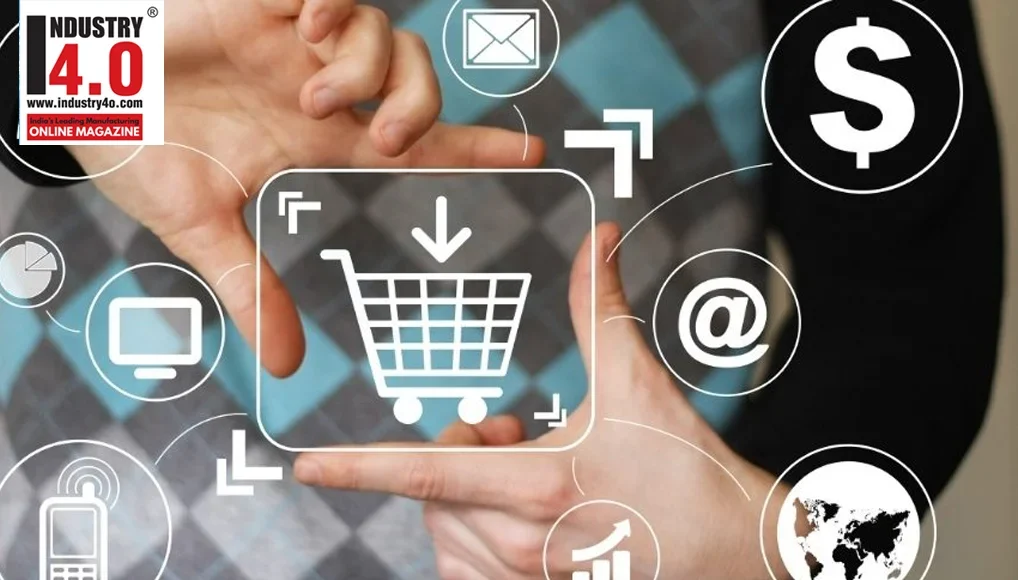Indian Corporate sector is getting increasingly enticed by digitalisation. As the world was struggling with pandemic fallout, many of our legacy enterprises have been busy redrawing their business and operating models to align with contact-less, paperless and cashless transactions. With over 400 million young, tech savvy entrants to the middleclass, it is only natural for businesses to look at digitalisation options.
Emergence of several successful start-ups in digital technology domains coupled with transformation initiatives in established businesses portend arefreshing dynamism inthe way we would do business in the emerging India.
Digital transformation has been an active topic in C-suite discussions over the past decade. However, most legacy businesses were reluctant to commit the time, effort and capital to projects for digitalising their operations. While many of them appreciated the concept as the preferred model for tomorrow, there was hardly any compelling urgency for disrupting the conventional way of working.
Covid pandemic has altered the risk-reward perception on digitalisationclearly in favour of taking the plunge. The immediate priority for business is to devise cost-effective ways of contact-less service to customers. With the paradigm shift, digital transformation is not just accepted as a serious strategic choice, but is seen as a necessity for survival, turnaround and growth.
There is now amarked change in social behaviour as the share of work- from-home (WFM) population increases and more people and businesses are comfortable with WFH. Digital seems a lot more natural option than physical when it comes to most routine chores including essential shopping.
Indian Retail is now at the cusp of unprecedented level of digitalisation. Ranging from the pop-and-mom store next door to the neighbourhood ‘super markets’ to the malls and branded retail chains, our shopping eco-system is among the largest in the world and growing at a fast pace. As in most aspects of the economy and life in India, the range of formalisation, professionalisation and digitisation varies substantially among the players in the retail industry.
The size and reach of retail sector in India underscore the strategic contribution that digital transformation of this critical business can have on employment, earnings and upward social mobility across India. The size of our Retail industry in India (as per 2020 estimates, pre-Covid) is around USD 1 Trillion. Even after accounting for the supply chain bottlenecks and the strain on personal income due to the pandemic, the contribution of retail sector in our economy is extensiveand loaded with potential for fast growth on the other side of the lockdown.
Retail can employ significant share of new job seekers since the retail value chain traverses a range of industries and functions. After all, we are still using many obsolete, inefficient and wasteful processes and practices for making, moving, storing, distributing and monetising merchandise across the nation. Digitalising retail is no doubt a gamechanger for the economy. The benefits to the economy from the initiative would be massive and its impact would be felt over many sectors.
India’s smart phone penetration would be nearly 500 million by 2022. The telecom network would be upgraded mostly to 4-G over the next two years with possibility of early 5-G rollout at least in key territories. The Federal Government has announced plans to speed up the nation-wide broadband fibre connectivity project to cover over 600,000 villages in the next three years. With many telecom infrastructure upgrade projects slated to come alive over the next few years, the stage is being set for a digitally enabled market place to serve a Billion plus customers.
While connectivity and bandwidth would be addressed by these initiatives, the consolidation, restructuring and upgrade of the retail eco-system is a massive work-in-progress. Major Retail Industry players are already talking about forging partnerships, soliciting investments and adopting global best practices. The new Indian Retail would be benchmarked to and competitive against the best-in-class globally. We have for the first time a serious opportunity to curate in India global scale digital retail enterprises in the league of Amazon and Alibaba.
As I crystal-gaze the future of Retail scenario, certain trends are visible and are expected to gather momentum over the next decade.
Firstly, retail sector is in for massive formalisation and professional upgrade. The sector today employs more than 30 million people in India, more than 90% of them in informal sector. Kirana stores provide the last-mile delivery of food and convenience items across the vast Indian hinterland.According to estimates, these neighbourhood mom-and-pop stores will still have three-fourth share of the market even with faster digitalisation and expected growth in e-commerce with the roll out of 5G.
Key players in the organized sector are looking at scalable and inclusive model of digital transformation and hope to add kirana stores as delivery partners.It is a win-win for both. While the smaller shops provide reach and personal touch in delivery, the larger players help in professional, process and systems upgrade of the vast network of small traders.
Secondly, the impending transformation of retail sector would involve comprehensive changes in the way Indians shop and suppliers deliver. Essentially the new digital business model for retail would be a platform-based approach that brings together the various stakeholders in the retail ecosystem creating efficient and scalable marketplaces.Managing digital business would involve understanding and acting on the five P’s of Digital Business Canvas – Platforms, Partnerships, Processes, People and Products.
In the context of retail, the digital business canvas is vast. The variety and number of stakeholders who would collaborate on the platform and benefits from revenue scale up, functional upgrade and expanded reach are significant. When retail goes for a digital push, the disruptive shakeup would touch the length and breadth of India. The digital retail business model would generate need for massive skilled workforce. This would open up the retail skill development domain for investment and collaborations.
Rapid advances and growing synergies in cloud, mobile and analytics enable the building of digital platforms that would create efficient and scalable marketplaces. One of the benefits of platform model is its ability to include smaller and unorganized players in the market and thus speed up the trickle-effect of economic development to the lower echelons of the population pyramid.
Thirdly, digital transformation of retail would speed up the changeover to digital payment culture. That would plug leakages in revenue stream and bring in financial discipline. Payment process digitalization would facilitate credit rating and smoother working capital support for frontline retail operators.
Fourthly, warehousing, logistics and sales and customer support services would be goaded for consolidation and process refinement as a result of leaner and agile retail operations. Digitalisation benefits would cascade down to the backend service portfolio resulting in working capital efficiency and positive impact on financials.
Fifthly, we are likely to see synergies emerging from multi-channel sales operations with pragmatic blend of online sales and over-the-counter counter sales. With the expansion of last mile delivery pipeline by the inclusion of neighbourhood shops in the loop, customer experience would get a boost because customers can feel, order, pay, access delivery and tap customer care services from the most convenient touch point instead of having to access the original point of sale. Digitalization would bring in unprecedented flexibility and ease of transitions to customers.
Sixthly, smart shopping enabled by advanced digital technology applicationssuch as sensors, connected devices, real-time analytics support, robotics and augmented/virtual Reality would be the next big thing. Rollout of 5G network and fibre-to-the-home (FTTH) technologies would boost smart shopping in the emerging market place. Smart Shopping experience similar to Amazon Go shops (now piloted in a few US and UK cities) would hopefully be available in Indian cities in the not so distant future.
The technology is ready or nearly so to provide unprecedented retail experience. Businesses are restructuring and transforming to bring the feel of new shopping to the customers.
The Retail revolution is just starting. Exciting possibilities for job creation, customer delight and revenue scaleup await Indian Retail.
About the Author

Mr. Ravikumar Pillai
The author is a Consultant, Coach and Mentor based in Trivandrum and can be contacted at [email protected]









